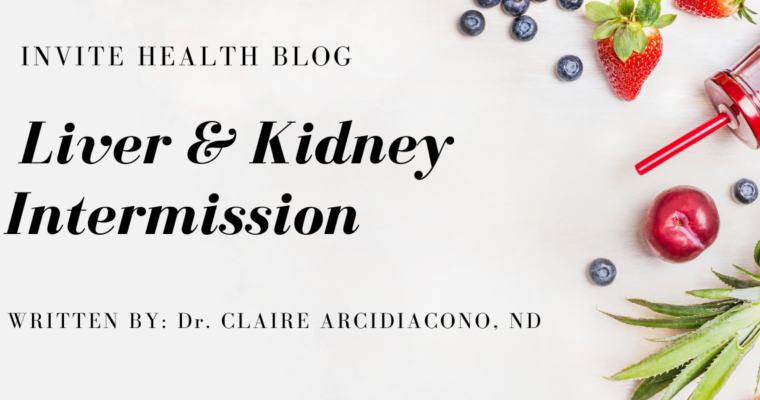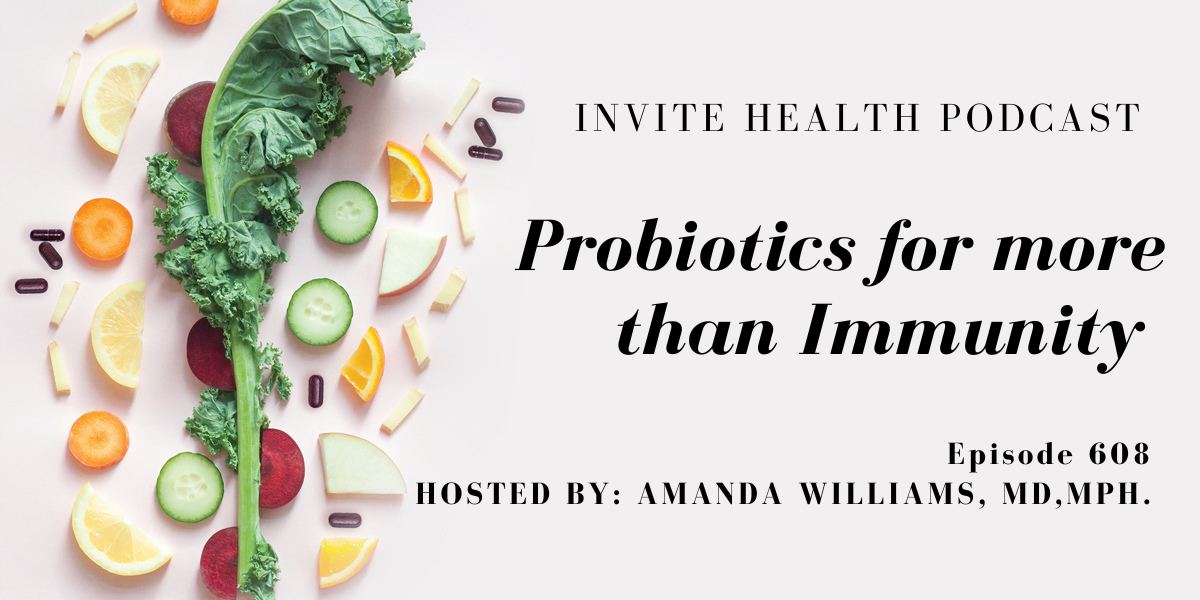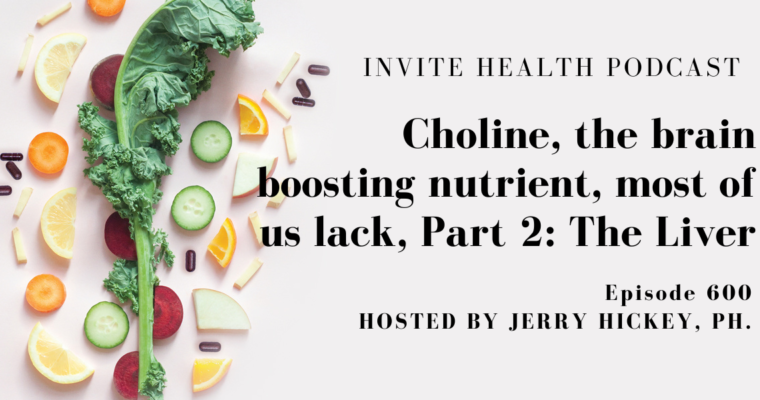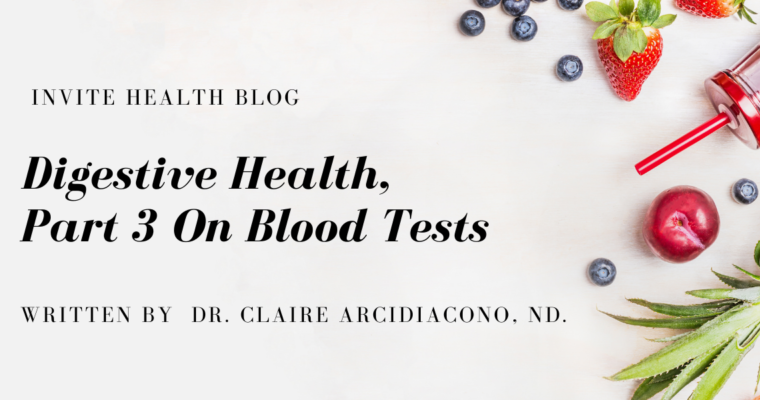Subscribe Today!
Please see below for a complete transcript of this episode.
PROBIOTICS FOR MORE THAN IMMUNITY, INVITEⓇ HEALTH PODCAST, EPISODE 608
Hosted by Amanda Williams, MD, MPH

*Intro Music*
InViteⓇ Health Podcast Intro: [00:00:04] Welcome to the InViteⓇ Health Podcast, where our degreed health care professionals are excited to offer you the most important health and wellness information you need to make informed choices about your health. You can learn more about the products discussed in each of these episodes and all that InVite Health has to offer at www.invitehealth.com/podcast. First time customers can use promo code Podcast at checkout for an additional 15% off your first purchase. Let’s get started.† [00:00:34]
*Intro Music*
Amanda Williams MD, MPH: [00:00:40] It seems like every day we’re learning more about the human microbiome. So for me, being science minded, I find this incredibly fascinating, the research that has come out over the past decade is so incredibly impressive and just reinforces why any shift in our microbiome can create significant havoc in our body and understanding what the microbiome actually is. It’s the environment or a community of different microbes that live in our system, and we know that we have a ton of microbial cells in the body. When we look at the comparison of microbes versus human cells, we have many more of the microbial cells in our system on any given day than we do even human cells. So we have to be able to treat them kind because we know that when we look at the microbiome, if there are factors that can lead to this alteration or dysbiosis, this can affect us in very significant ways they’ve been able to now link, you know, the gut and the brain and our mood health directly to our intestinal bacteria we can look at cardiovascular health and liver health and of course, our immune health.† [00:01:59]
[00:02:00] And we get so many questions about probiotics and what type of probiotics should I take? How often should I take my probiotics? So I thought it was fitting to talk about probiotics today. And I am Dr. Amanda Williams. I am the scientific Director at Invite Health. And we know that probiotics can be very helpful for a whole variety of different health concerns when it comes to our digestive health, our immune health, our skin health, we have found that when people use our Probiotic Hx, for example, maybe they were suffering from psoriasis or eczema or acne. And once they start to get these good, healthy bacteria into their system, they start to see this skin clearing effect that has on our immune system. So there are so many ways that we can incorporate in probiotics into our routine to enhance our health, and we have a variety of different probiotics for you to select from.† [00:03:01]
ICYMI: STAYING HEALTHY WHILE TRAVELING WITH THESE TIPS, INVITE HEALTH PODCAST, EPISODE 607>>LISTEN NOW!
[00:03:01] And looking at what it is the microbiome is doing for us in terms of creating balance and how it’s been linked, how gut dysbiosis or an imbalance of healthy bacteria versus unhealthy bacteria is linked directly to, you know, seasonal allergies, skin conditions, GI problems, leaky gut, chronic inflammation, which is linked to every single chronic disease state out there. We’ve even been able to narrow down specific strains of bacteria that can promote weight loss, which is why we have our Probiotic Hx Weight with the Bifidobacterium breve b3 in that. We can see how certain strains of bacteria are very beneficial for vaginal and urinary health. Lactobacillus is the predominant type of bacteria that is found throughout the vaginal tract hence this is why we have our probiotic for women formulation, which has four strains of lactobacillus combined with garlic and thyme extract, so looking at the history of how scientists really started to understand the influence of the microbiome and how the different bacteria are influencing our overall everyday health is what is really incredibly fascinating. And it kind of started with the Human Microbiome Project, which was launched in the early 2000s through the National Institute of Health and they’ve been able to now narrow down, actual strains of bacteria that affect or impact our GI tract, our skin, our respiratory tract. Which is why this is an area when it comes to supplementation that we don’t want to overlook, that we want to make sure that we’re doing everything in our power. And this is where that Probiotic Hx really comes into play, because it has five clinically studied strains of powerful bacteria that can make their way through the harsh environment within the stomach to optimize the intestinal health, and the more that we can optimize the intestinal health, the better support we get for all of those different systems throughout the entire body.† [00:05:17]
[00:05:18] So we look at the digestive system and the respiratory system, our cardiovascular system, we know that different bacteria actually create healthy byproducts known as short chain fatty acids, including one known as Butyrate, which can really enhance the way that our body reacts to inflammation, which is key, but we also know that we can have unhealthy bacteria that start to kind of take over and can do the opposite effect. They release harmful acids, which can actually drive up inflammation and create systemic problems for us. So at the end of the day, we know that there are a lot of different approaches that we can take. We have to look at what affects our microbiome. Am I on a medication that’s affecting my gut bacteria? Is the food that I eat every single day affecting my microbiome? So I always talk about adherence to a mediterranean, Mediterranean style way of eating, because we recognize that those high fiber foods that we commonly find in a mediterranean style food menu have wonderful amounts of these fibers that allow those good, healthy bacteria that reside within our microbiome to have a source to kind of feed off of, and this really can make a huge difference in creating that homeostasis or that balance, because anytime we have that shift in the microbial balance away from a pattern that’s associated with health and wellness, we consider this to be dysbiosis. So if we have a healthy microbiome that’s highly diverse with all of these different strains of good healthy bacteria that release these wonderful short chain fatty acids, this can target issues such as allergies, such as autoimmune conditions, heart health, chronic fatigue, type two diabetes, obesity. If we ignore our microbiome, then this leads to that dysbiosis, we can have systemic inflammation and leaky gut. † [00:07:27]
ICYMI: AN UPDATE ON VITAMIN C & THE IMMUNE SYSTEM, INVITE HEALTH PODCAST, EPISODE 606>>LISTEN NOW!
[00:07:28] There are a lot of factors that we have to look at when it comes to probiotics, we have to look at the quality of these strains of bacteria, not all bacteria are created equally. And this is why the Probiotic Hx is such a powerhouse, and has been for so many years, because it has those strains that have been used in clinical trials that have been shown to make their way through the harsh digestive environment, be able to get their way to the intestines and help with the recolonization. And then you have the Probiotic for weight, and using the single strain probiotic to promote healthy weight loss by creating this more diverse balance within the gut. And then that’s partnered up with the BergacynFF, so it has Bergamot fruit extract along with artichoke. So it really helps with the liver detoxification each and every single day too, which is key because the more that we detox our body from day to day, the easier it is for our normal metabolism to work properly, and hence we will have an easier time with maintaining healthy weight. And then we look at the probiotic for women in creating that homeostasis once again, with those powerful strains of Lactobacillus partnered with the garlic, and thyme, which have been shown to be highly effective in targeting things such as yeast overgrowth. So for candida infections as well as for bacterial vaginosis, so when it comes to probiotic supplementation, whether you’re dealing with an issue such as digestive health, irritable bowel, acid reflux, immune health, that gut brain connection, maybe you have some anxiety or some low mood. We want to be looking at the Probiotic Hx as a daily supplement that we take. If we are looking at the promotion of detoxification and supporting our liver and healthy weight, we look at the Probiotic HX Weight. If we have any type of dysbiosis that is brought on because of a urinary tract infection for example, then we would want to be looking at the, Probiotic for women. At the end of the day, you want to make sure that the probiotic that you are taking is creating the most optimal environment to support a healthy microbiome. And this is when you want to speak with one of our nutritionists for guidance as to how you should take our probiotics,when you should take them. How many should you be taking per day? All of these are going to be influenced based on your specific health concerns. And at the end of the day, we want to be able to promote healthier cholesterol metabolism and support our immune system and our blood pressure and our mood health. Which is why getting on the right probiotic for what your targeted goals are, is so key. So definitely check out all of what we have to offer when it comes to probiotic formulations. And make sure that you tune in to our radio shows where we cover so much when it comes to the clinical research on these different strains. I want to thank you so much for tuning in to the InViteⓇ Health Podcast. Remember, you can find all of our episodes for free wherever you listen to podcasts or by visiting, Invitehealth.com/podcast. Do make sure that you subscribe and you leave us a review. You can follow us on Facebook, Twitter and Instagram at Invite Health. And we will see you next time for another episode of the InViteⓇ Health Podcast..† [00:07:28]
*Exit Music*












